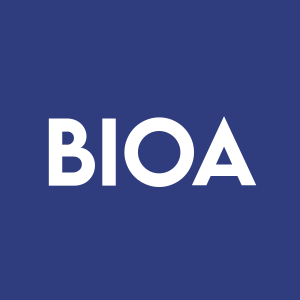Leqembi® (lecanemab) launched in the EU today
Rhea-AI Summary
BioArctic AB (NASDAQ Stockholm: BIOA B) announced the EU launch of Leqembi®, the first therapy targeting an underlying cause of Alzheimer's disease, starting in Austria on August 25, 2025, and Germany on September 1, 2025.
The drug, approved by the European Commission in April 2025, is indicated for adult patients with mild cognitive impairment and mild dementia due to early Alzheimer's disease who are ApoE ε4 non-carriers or heterozygotes with confirmed amyloid pathology. In clinical trials, Leqembi demonstrated a 31% reduction in clinical decline at 18 months compared to placebo in the EU indicated population.
The treatment uniquely targets both amyloid plaque and protofibrils, potentially impacting tau accumulation. Common adverse reactions include infusion-related reactions (26%), ARIA-H (13%), headache (11%), and ARIA-E (9%).
Positive
- First EU-approved therapy targeting an underlying cause of Alzheimer's disease
- Clinical trials showed 31% reduction in clinical decline at 18 months vs placebo
- Unique dual mechanism targeting both amyloid plaque and protofibrils
- Successful completion of mandatory authorization requirements in Austria and Germany
Negative
- Treatment limited to specific genetic population (ApoE ε4 non-carriers or heterozygotes)
- Significant adverse reactions including ARIA-H (13%) and ARIA-E (9%)
- 26% of patients experienced infusion-related reactions
News Market Reaction
On the day this news was published, BIOA declined 2.17%, reflecting a moderate negative market reaction.
Data tracked by StockTitan Argus on the day of publication.
Following the EC approval, Eisai has been collaborating with the regional and local healthcare authorities to implement the mandatory authorisation requirements ahead of launch. The required controlled access program[2] is now in place in
Alzheimer's disease is a progressive, relentless disease with Aβ and tau as hallmarks. It progresses in stages that increase in severity over time, and each stage of the disease presents different challenges for those living with the disease and their care partners. There is a significant unmet need for new treatment options that slow the progression of Alzheimer's disease from its early stage and reduce the overall burden on people affected by Alzheimer's disease and society. Only Leqembi fights Alzheimer's disease in two ways - targeting both amyloid plaque and protofibrils[3], which can impact tau accumulation downstream.
In the Clarity AD clinical trial, the primary endpoint was the global cognitive and functional scale, Clinical Dementia Rating – Sum of Boxes (CDR-SB).i Treatment with lecanemab (n=757), in the EU indicated population (ApoE ε4 non-carriers or heterozygotes, measured by controlled-based multiple imputation[4]), reduced clinical decline on CDR-SB by
In the EU indicated population (ApoE ε4 non-carriers or heterozygotes) (n=757), the most common adverse reactions were infusion-related reaction (
Leqembi is the result of a long-standing collaboration between BioArctic and Eisai, and the antibody was originally developed by BioArctic based on the work of Professor Lars Lannfelt and his discovery of the Arctic mutation in Alzheimer's disease. Eisai is responsible for the clinical development, applications for market approval and commercialization of Leqembi for Alzheimer's disease. BioArctic has the right to commercialize Leqembi in the Nordic region together with Eisai and the two companies are preparing for a joint commercialization in the region.
The information was released for public disclosure, through the agency of the contact person below, on August 25, 2025, at 09:00 a.m. CET.
For further information, please contact:
Oskar Bosson, Vice President Communications and Investor Relations
Telephone: +46 70 410 71 80
E-mail: oskar.bosson@bioarctic.com
About lecanemab (Leqembi®)
Lecanemab is the result of a strategic research alliance between BioArctic and Eisai. It is a humanized immunoglobulin gamma 1 (IgG1) monoclonal antibody directed against aggregated soluble (protofibril) and insoluble forms of amyloid-beta (Aβ).i,[ii]
Lecanemab is approved in the
The primary endpoint was the global cognitive and functional scale, CDR-SB ii In the Clarity AD clinical trial, treatment with lecanemab (n=757), in the EU indicated population (ApoE ε4 non-carriers or heterozygotes, measured by control-based multiple imputation), reduced clinical decline on CDR-SB by
In addition, the secondary endpoint from the AD Cooperative Study-Activities of Daily Living Scale for Mild Cognitive Impairment (ADCS MCI-ADL), which measures information provided by people caring for patients with AD, noted
In the EU indicated population (ApoE ε4 heterozygotes or non-carriers), the most common adverse reactions were infusion-related reaction (
Lecanemab has been approved in 48 countries and is under regulatory review in 10 countries. In January 2025, the supplemental Biologics License Application (sBLA) for intravenous (IV) maintenance dosing of the treatment was approved in the
Since July 2020, Eisai's Phase 3 clinical study (AHEAD 3-45) with lecanemab in individuals with preclinical AD, meaning they are clinically normal and have intermediate or elevated levels of amyloid in their brains, is ongoing. The study was fully recruited in October 2024. AHEAD 3-45 is a four-year study conducted as a public-private partnership between Eisai, Biogen and the Alzheimer's Clinical Trial Consortium that provides the infrastructure for academic clinical trials in AD and related dementias in the
About the collaboration between BioArctic and Eisai
Since 2005, BioArctic has a long-term collaboration with Eisai regarding the development and commercialization of drugs for the treatment of Alzheimer's disease. The most important agreements are the Development and Commercialization Agreement for the lecanemab antibody, which was signed 2007, and the Development and Commercialization agreement for the antibody Leqembi back-up for Alzheimer's disease, which was signed 2015. In 2014, Eisai and Biogen entered into a joint development and commercialization agreement for lecanemab. Eisai is responsible for the clinical development, application for market approval and commercialization of the products for Alzheimer's disease. BioArctic has the right to commercialize lecanemab in the Nordic region and is currently preparing for commercialization in the Nordics together with Eisai. BioArctic has no development costs for lecanemab in Alzheimer's disease and is entitled to payments in connection with regulatory approvals, and sales milestones as well as royalties on global sales.
About BioArctic AB
BioArctic AB (publ) is a Swedish research-based biopharma company focusing on innovative treatments that can delay or stop the progression of neurodegenerative diseases. The company invented Leqembi® (lecanemab) – the world's first drug proven to slow the progression of the disease and reduce cognitive impairment in early Alzheimer's disease. Leqembi has been developed together with BioArctic's partner Eisai, who are responsible for regulatory interactions and commercialization globally. In addition to Leqembi, BioArctic has a broad research portfolio with antibodies against Parkinson's disease and ALS as well as additional projects against Alzheimer's disease. Several of the projects utilize the company's proprietary BrainTransporter™ technology, which has the potential to actively transport antibodies across the blood-brain barrier to enhance the efficacy of the treatment. BioArctic's B share (BIOA B) is listed on Nasdaq Stockholm Large Cap. For further information, please visit www.bioarctic.com.
[1] Apolipoprotein E is a protein involved in the metabolism of lipid in humans. It is implicated in AD. People with only one (heterozygous) or no copy (non-carriers) of the ApoE ε4 gene are less likely to experience ARIA than people with two ApoE ε4 copies (homozygous).ii ARIA is a recognized important side effect with lecanemab that involves swelling and potential bleeding in the brain.i, ii
[2] Controlled access program is a system that restricts the use and distribution of certain medicines. It is designed to promote the appropriate use of medicines while ensuring patient safety. In line with the EC approval requirements, initiation of lecanemab treatment should be through a central registration system implemented as part of CAP.
[3] Protofibrils are believed to contribute to the brain injury that occurs with AD and are considered to be the most toxic form of Aβ, having a primary role in the cognitive decline associated with this progressive, debilitating condition.v Protofibrils cause injury to neurons in the brain, which in turn, can negatively impact cognitive function via multiple mechanisms, not only increasing the development of insoluble Aβ plaques but also increasing direct damage to brain cell membranes and the connections that transmit signals between nerve cells or nerve cells and other cells. It is believed the reduction of protofibrils may prevent the progression of AD by reducing damage to neurons in the brain and cognitive dysfunction. v, Vi
[4] As requested by the regulatory authority, efficacy analyses were conducted for ApoE ε4 non-carriers or heterozygotes participants using control-based multiple imputation method, in which all missing values were imputed with copy-increments (change between visits) using the actual value in placebo group.vii This methodology differs from that used in the Clarity AD primary analysis which used mixed-model repeat measures (MMRM) with missing at random assumption.
[i] European Medicines Agency Summary of Product Characteristics (SmPC)
[ii] van Dyck, C.H., et al. Lecanemab in Early Alzheimer's Disease. New England Journal of Medicine. 2023;388:9-21. https://www.nejm.org/doi/full/10.1056/NEJMoa2212948.
[iii] Morris, J.C. The Clinical Dementia Rating (CDR): current version and scoring rules. Neurology. 1993;43:2412-2414.
[iv] Pedrosa, H., et al. Functional evaluation distinguishes MCI patients from healthy elderly people–the ADCS/MCI/ADL scale. The Journal of Nutrition, Health and Aging. 2010;14(8):703–9.
v Amin, L., Harris, D.A. Aβ receptors specifically recognize molecular features displayed by fibril ends and neurotoxic oligomers. Nature Communications. 2021;12:3451. doi:10.1038/s41467-021-23507-z.
vi Ono K, Tsuji M. Protofibrils of Amyloid-β are Important Targets of a Disease-Modifying Approach for Alzheimer's Disease. Int J Mol Sci. 2020;21(3):952. doi: 10.3390/ijms21030952. PMID: 32023927; PMCID: PMC7037706.
vii Froelich L., et al. Lecanemab for treatment of individuals with early Alzheimer's disease (AD) who are apolipoprotein E E4 (ApoE e4) non-carriers of heterozygotes. Poster presented at German Association for Psychiatry, Psychotherapy and Psychosomatics (DGPPN) conference, November 2024
This information was brought to you by Cision http://news.cision.com
https://news.cision.com/bioarctic/r/leqembi---lecanemab--launched-in-the-eu-today,c4222389
The following files are available for download:
Leqembi® (lecanemab) launched in the EU today |
![]() View original content:https://www.prnewswire.com/news-releases/leqembi-lecanemab-launched-in-the-eu-today-302537465.html
View original content:https://www.prnewswire.com/news-releases/leqembi-lecanemab-launched-in-the-eu-today-302537465.html
SOURCE BioArctic







